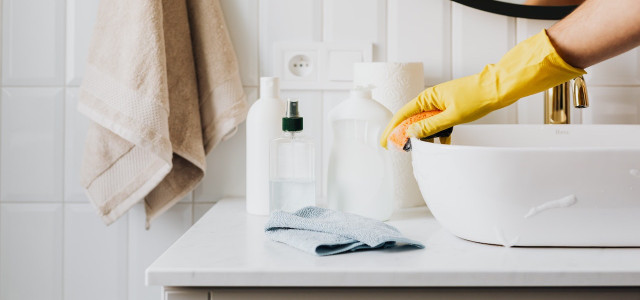It’s fairly easy to remove hard water stains, but that’s only half your battle. Without fixing the source of the problem, you’re bound to keep cleaning the same stains over and over again. We’ll explain how to get rid of hard water stains, and also how to prevent them in the first place.
What is Hard Water?
Hard water is simply water with a high mineral content, typically magnesium and calcium. The concentration levels of these minerals determine how hard or soft your water is. Approximately 85% of the USA is plagued with varying degrees of hard water – this comes from the large limescale deposits left behind from the ancient seabeds that used to cover most of the country.
While there are no serious health problems associated with drinking hard water, it can definitely be a nuisance. It can wreak havoc on hair, skin, clothing, and appliances and leave you wondering how to remove hard water stains. If you’re not sure if it’s hard water that comes out of your taps there are a few signs to watch for:
- Lower Water Pressure
- Mineral Stains on Textiles
- Water Spots on Glasses and Silverware
- Toilet Stains
- Cloudy Water
If you’re still not sure, you can check out a Water Hardness Map to see which zone you’re in.
Getting Rid of Hard Water Stains in the Bathroom
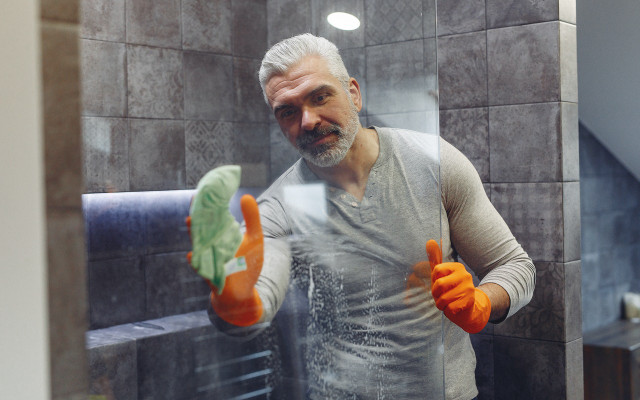
The bathroom is often where we battle the majority of our hard water stains, simply because of the amount of water used. Whether you’re trying to remove hard water stains from your toilet, shower, or sink, there are plenty of natural ways to fight back.
Toilet: Hard water stains in your toilet can look red (and rusty) or yellow and if left untreated, become next to impossible to remove. That’s where vinegar and baking soda come in. Drain the bowl, add a cup of vinegar and swish it around with a toilet brush. Add a cup of baking soda, followed by 2 more cups of vinegar, and let sit for at least 15 minutes. Then, scrub with your toilet brush until the stains disappear. For really stubborn stains, scrub with steel wool.
Shower: To keep your shower running in tip-top shape, you should give your showerhead a deep clean to remove any of the mineral build-up caused by hard water. To do this, remove the showerhead and soak it in white vinegar for at least an hour. Rinse with water before reattaching it. The same goes for removing hard water stains on the glass shower door. Add equal parts white vinegar and water to a reusable spray bottle, and give the shower a good spray. Allow it to sit for 15 minutes, then wipe it off with a cloth or use a squeegee. Remember to use the squeegee to wipe down your shower after each use to avoid future stains.
Faucet: If you have unsightly stains on your faucet, you can get rid of hard water stains easily with toothpaste! Simply apply the toothpaste to your faucet or other small metal fixtures, scrub with a brush, and wipe clean.
Hard Water Stain Removal for Large Appliances
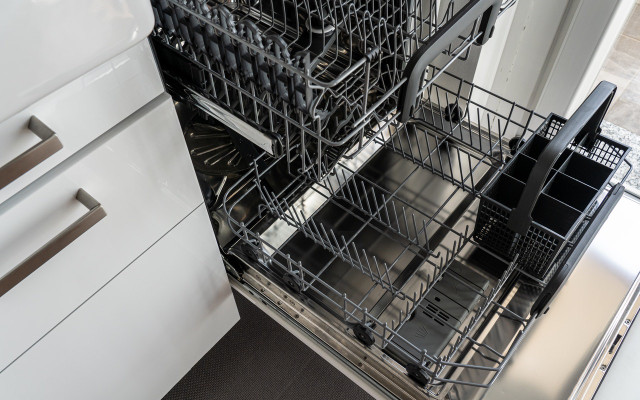


We’re all guilty of forgetting to clean the appliances that clean for us, like dishwashers and washing machines. While it’s a habit we should get into, it’s even more necessary for those with hard water. Hard water causes mineral build-up which weakens appliances over time.
Dishwasher: Have you ever noticed white looking water marks on your dishes and glasses when you’re emptying the dishwasher? Those are hard water stains, and a sign that your dishwasher should get a good cleaning. To get rid of those hard water stains, empty it out – removing every piece you can. Wash the pieces in the sink with warm water and dish soap and then put them back. Once everything is back in place, add two cups of lemon juice or few spoonfuls of citric acid to the bottom of your dishwasher and put it on a low-energy or quick wash cycle. Halfway through, pause the cycle and allow the lemon juice to sit there for 20 minutes. After the 20 minutes is up, finish the cycle and your dishwasher should be running like new!
Laundry Machine: If you’ve found that your clothes come out dingier than when you put them in, it’s probably due to hard water. This not only causes stains, but can also interact negatively with the cleaning products. To give your washing machine a good clean and prevent hard water stains, add ⅓ cup citric acid to your machine and run it on a normal cycle. This acts as a descaling agent and will get rid of the hard water buildup.
Removing Other Household Water Stains
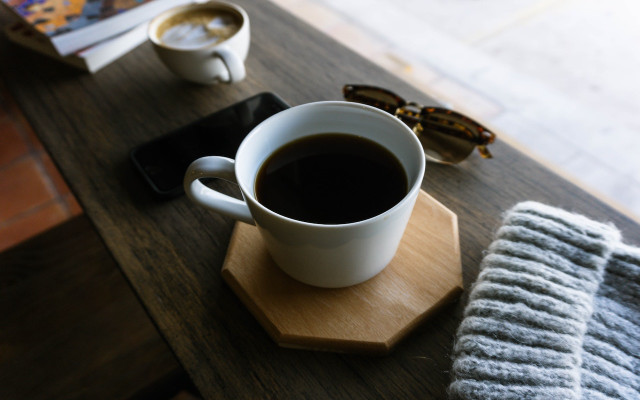


Water stains can cause anything to look a bit grungy, whether its your coffee table, car seat or clothing. However, there are a few tricks you can use to get rid of hard water stains.
- Clothing: add a splash of vinegar to a sink filled with lukewarm water. Swish the article of clothing around a few times, then let soak. Remove and gently wring out the water before laying/hanging to dry.
- Carpet: if the area is still wet, sprinkle some salt on it. This will draw the moisture out of the carpet, and you can vacuum the salt up afterwards. If the stain has set, you can spray a water/vinegar mixture on it to neutralize the lime content in the water.
- Car Upholstery: you can use a method similar to the carpet for upholstery or you can cut a lemon in half and gently rub it over the stained area. You can then use a clean cloth to dry it.
- Wood: if the wood is not varnished, you can use a bit of toothpaste to get rid of hard water stains. If it is varnished, mix olive oil with some salt and rub it on the affected area. In extreme cases, sanding is the only way to remove hard water stains.
Hard Water Prevention
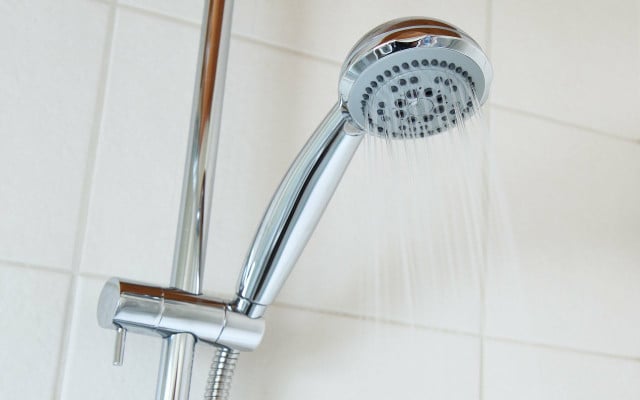


If you live in a hard water zone, you’re in for a lifelong battle. Cleaning the stains and descaling your appliances can get a bit tedious, and only works for so long before you end up having to replace them. If you own your home, you can install a water softener, saving you a lot of trouble. Even if you’re renting, there are still some things you can do.
- Shower Filter: to keep hard water stains to a minimum, and give your hair and skin some life back, invest in a shower filter (available on Amazon**).
- Drinking Water Filter: by using a water filtration system for your drinking water, you can avoid having to regularly descale your kettle. You can purchase a pitcher filtration system in the majority of grocery stores or you can get one directly for your tap in hardware stores or on Amazon**.
- Hand Wash Dishes: if you hand wash and dry your dishes, you’re able to avoid the majority of hard water stains left behind. However, whether this method actually uses less or more water than a dishwasher is still up for debate.
Do you like this post?






